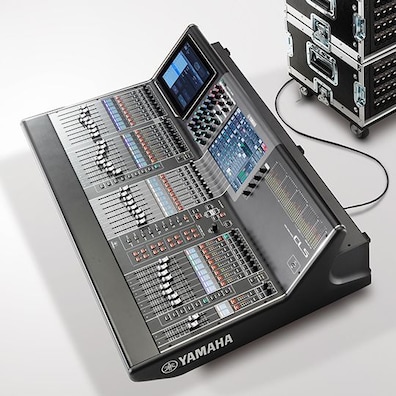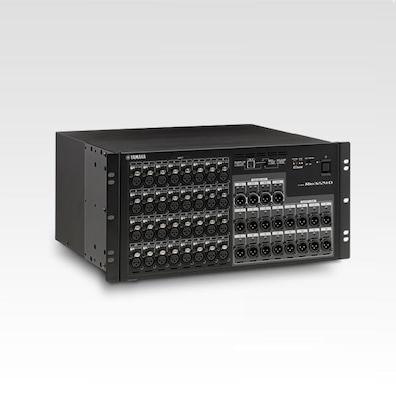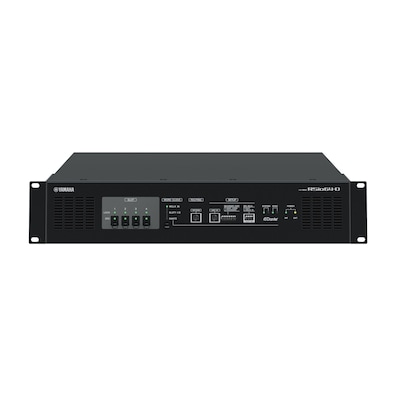Staging Connections put CL and R-series into action for Adelaide’s V8 Supercar races

Held over four days from 26 February to 1 March 2015, the Clipsal 500 is a massive V8 Supercar street race that brings over 285,000 people through its gates. Run on a 3.7 km long circuit through Adelaide’s beautiful East Parklands, the Clipsal 500 is a multiple award-winning event, attracting a huge audience both at the track and via broadcast. Staging Connections’ Adelaide team has been proudly involved with the race since it was first run in 1999, and in 2015, radically upgraded their production infrastructure to make this year’s race the most technically sophisticated on the circuit.

“The South Australian Motor Sport Board had been talking to us about taking the event to the next level in terms on technology,” said Trent Parkin, Sales Manager at Staging Connections, “so we started looking at the different platforms available to run the audio system, and new ways to upgrade the TV reticulation system”. Tatu Murch-Lempinen, Staging Connections Operations Manager in Adelaide, assisted Trent as they designed a new system to make the event’s backbone the equal of any event in the world. “We began looking at options as last year’s event ended,” Tatu explained. “Up until 2015, we’d been running the audio around the track via telephone lines. It went through a mainframe and was all copper cabling that ran from point-to-point. Trent and I started researching the option of running the audio system via fibre optic cabling. In the end, Audinate’s Dante network, with its star topology, perfectly suited our needs.”
Dante allows audio devices fitted with a Dante interface to send and receive audio channels over standard Ethernet infrastructure. This means off-the-shelf Ethernet switches, fibre optic cabling and standard Cat6 cabling can be used move audio over large distances and to many devices with a minimum of equipment, time and investment. Best of all, a Dante network’s channel capacity is only limited by its Ethernet switch’s bandwidth; a single standard gigabit Ethernet switch can carry an astonishing 512 channels of audio.
“The more we plotted out what we needed and where we needed it, the more it fitted Dante,” confirmed Trent. “It also made sense because of our strong relationship with Yamaha, whose range of digital mixers and remote input/output devices all support Dante.” To form the core of the system, Staging Connections acquired and rolled out an entirely new Ethernet platform. “We purchased a large amount of fibre optic cables and Cisco switches,” continued Tatu. “The longest fibre optic run around the track was about 1.2 kilometres. There were eight lines run previously, which we’ve had upgraded to 24 lines. We also have some temporary military-grade fibre running through underground pits.”
Mark Warren, CEO of the South Australian Motor Sport Board, saw a significant improvement in the quality of the audio at the event. “We’ve been running a programme with clear objectives to improve the patron experience at all levels, from the grandstands, to general admission and to the corporates,” he commented. “It was clear to us that the previous analogue audio system was in need of some attention. The old style horn speakers were in front of the corporate platforms, the grandstands and general admission, which resulted in disparate audio levels that couldn’t be tailored to suit. Staging Connections fully fibre-optic backbone gives us greater flexibility to adjust audio levels to each different patron’s needs.”
All audio devices required to run the event, including mixing desks, inputs, outputs and power amplifiers, all connected back to the Cisco switches via Cat6 cable. For mixing duties, Trent and Tatu decided on Yamaha’s CL5 digital mixers. “We find it’s an easy platform to use,” Tatu offered. “The CL5 is really easy for new operators to jump on board, find everything in it, and patch it. We ran two CL5s, one main and one redundant which was slaved via MIDI and mirrored what the main desk was doing. We had a laptop running the Dante Controller software, and in the case of any issues, we would have swapped the patch and made the secondary desk active. The changeover time would have been 20 seconds, if we had needed to do it.”
Deployed around track were a range of Yamaha’s R-series remote input/output interfaces. These ranged in size from the Rio3224-D 32 in, 24 out unit positioned at the media compound to the 16 in, eight out Rio168-D, right down to Ri8-Ds and Ro8-Ds that offer eight inputs and outputs respectively. With a fully integrated Dante network now available for all audio services on site, a variety of tasks became simpler. Outside broadcast provider Gearhouse Broadcast connected their HD-5 truck directly to Staging Connections’ audio system with two cables by using Yamaha’s new RMio64-D Dante-MADI bridge. “For Gearhouse to be able to put MADI directly into the interface right at the patch panel of their truck and not run a heap of copper tie lines between us both was fantastic,” praised Trent. “To be able to include this in our system upgrade, saving time and workload, helped the broadcaster out, I’m sure. Especially with their increased ‘on air’ commitments for the 2015 championship and the Clipsal 500 being Round One.”
Dave Hannan, Audio Supervisor for V8 Supercar Media agreed. “Staging Connections ran us two fibre optic lines to the OB truck. These connected to a Cisco switch and then to the Yamaha RMio64-D. We connected our consoles and DSP via MADI over fibre, which provided us with 64 lines in each direction. It’s great that Staging Connections has got this equipment on board, as it now makes the connectivity a carbon copy of the other big events we do. We don’t have to go to any extra effort to run additional cabling. It’s a powerful system”.
Over four days, through Adelaide summer heat and all the demands of a vast outdoor event, both the audio and video systems performed flawlessly.




